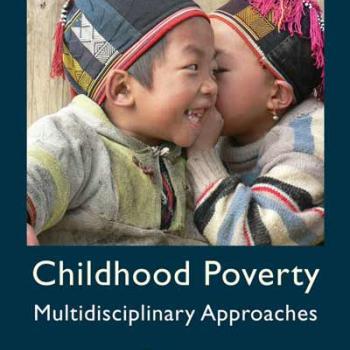Publication Information

By examining statistical associations between adverse circumstances in households and outcomes for children, the chapter captures the underlying processes that structure childhood risk. The chapter focuses on crime, economic shocks (such as job loss), government regulations (such as forced resettlement or land redistribution), environmental hazards, housing disasters (for example, fire), the illness or death of a household member and other family adversities (for example, separation of family members). The chapter warns against overly deterministic analyses and stresses the importance of mediating and contextual forces in human experience and development. It draws on emergent evidence from Andhra Pradesh, India, focusing on survey data for the whole sample and qualitative data collected with children in two communities: ?Polur?, a Muslim area of Hyderabad and ?Patna?, a rural community inhabited by the Jathapa sub-tribe in Srikakulam district. The chapter concludes by arguing for a revised approach to research in this field.
Reference: Boyden, Jo and Gina Crivello (2012) ' Political Economy, Perception, and Social Change as Mediators of Childhood Risk in Andhra Pradesh', in Jo Boyden and Michael Bourdillon (eds) Childhood Poverty. Multidisciplinary Approaches (pp.166-184). Basingstoke: Palgrave Macmilllan.

By examining statistical associations between adverse circumstances in households and outcomes for children, the chapter captures the underlying processes that structure childhood risk. The chapter focuses on crime, economic shocks (such as job loss), government regulations (such as forced resettlement or land redistribution), environmental hazards, housing disasters (for example, fire), the illness or death of a household member and other family adversities (for example, separation of family members). The chapter warns against overly deterministic analyses and stresses the importance of mediating and contextual forces in human experience and development. It draws on emergent evidence from Andhra Pradesh, India, focusing on survey data for the whole sample and qualitative data collected with children in two communities: ?Polur?, a Muslim area of Hyderabad and ?Patna?, a rural community inhabited by the Jathapa sub-tribe in Srikakulam district. The chapter concludes by arguing for a revised approach to research in this field.
Reference: Boyden, Jo and Gina Crivello (2012) ' Political Economy, Perception, and Social Change as Mediators of Childhood Risk in Andhra Pradesh', in Jo Boyden and Michael Bourdillon (eds) Childhood Poverty. Multidisciplinary Approaches (pp.166-184). Basingstoke: Palgrave Macmilllan.

